Aquarium magic with Moss Balls
Are you wondering if moss balls can replace plants in an aquarium? Moss balls have gained immense popularity in recent years, especially among aquarium enthusiasts, due to their unique appearance and low-maintenance requirements. But how suitable are they for your aquarium, and what purpose do they serve? Let’s dive into the world of moss balls to see how they can enhance your aquatic environment and whether they are right for your fish tank.
What is a Moss Ball?
Moss balls, also known as Marimo moss balls, are not actually moss but a type of green algae scientifically called Aegagropila linnaei. These round, velvety plants grow naturally in freshwater lakes, especially in Japan, Iceland, Scotland, and Estonia. The algae form into soft, spherical shapes over time, either through the movement of currents or when manually shaped by aquarium owners. Moss balls offer a unique aesthetic and serve various beneficial purposes for aquariums. It is among the top Aquarium accessories in home decor.
Purpose and Suitability for Aquariums
Moss balls are suitable for a wide variety of aquariums, from small betta tanks to larger community setups. Here’s why they can be an ideal choice for your aquarium:
- Oxygenation: Moss balls, like any other plant, produce oxygen through photosynthesis, benefiting fish by providing a healthier environment.
- Water Filtration: They help filter water by absorbing nitrates and other toxins, which can harm your fish. Moss balls act as a natural filter and contribute to keeping your aquarium clean.
- Decoration: Their unique round shape and deep green colour add a visually appealing, natural touch to any aquarium. They can be placed on the tank bottom, suspended, or even attached to other surfaces.
- Low-Maintenance: Unlike most aquarium plants, moss balls are incredibly easy to care for, making them perfect for both beginners and seasoned aquarists.
Types of Moss Balls for Aquariums
While the most common type of moss ball is the Marimo moss ball, here are a few variations and alternatives:
- Japanese Marimo Moss Balls: These are the traditional moss balls found in Japan. They grow slowly and are often seen in freshwater lakes.
- Fake Moss Balls: Synthetic alternatives are available, which may serve as decoration but won’t offer the same benefits like oxygenation or nitrate absorption.
- Carpet Moss Balls: These are shredded Marimo moss balls spread out to form a carpet in aquariums.
The Marimo moss ball plant for aquariums is by far the most sought-after variety due to its natural benefits and unique aesthetic appeal.
Moss Ball Characteristics:
To help you decide if moss balls are the right fit for your aquarium, let’s take a closer look at their characteristics:
- Average Size:
Moss balls typically range from 1 to 4 inches in diameter. However, they can grow slowly and reach up to 12 inches over many years. - Average Cost:
The cost of moss balls varies depending on their size and where you purchase them. Generally, a small moss ball can cost anywhere from $5 to $15. If you’re looking to buy moss balls for sale, many pet stores and online retailers offer them in bundles, which can be more economical. - Climate and Water Conditions:
Moss balls thrive in freshwater with a temperature range of 72°F to 78°F. They prefer low to moderate lighting conditions. High light exposure can cause them to turn brown, while cooler waters (below 70°F) help them retain their vibrant green colour. - Maintenance:
Moss balls are considered low-maintenance plants. They require occasional cleaning, which involves gently squeezing them to remove trapped debris and rolling them to maintain their spherical shape. Unlike many other aquarium plants, they don’t need any special fertilizers or CO2 injections to thrive. - Lifespan:
With proper care, a moss ball can live for up to 100 years, making it a long-term investment for your aquarium.
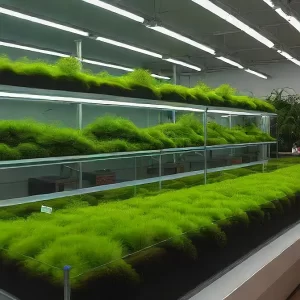
Pros and Cons of Using Moss Balls in Aquariums
While moss balls offer numerous benefits, they also come with some downsides. Let’s explore both:
(+) Pros:
Low Maintenance: Ideal for beginners, moss balls don’t require complex care routines.
Water Quality Improvement: They absorb nitrates and other harmful substances, helping to keep your aquarium clean.
Fish Compatibility: Moss balls are safe for almost all fish species, including bettas, shrimps, and snails. Fish may even play with them!
The list of the 15 best playful aquarium fish online is here.
Unique Aesthetic: Their spherical shape and vibrant green colour provide a natural yet unique decoration for any tank.
Durability: Moss balls can live for decades, making them a long-lasting addition to your aquarium.
(-) Cons:
Slow Growth: Moss balls grow very slowly, so if you’re looking for a fast-growing plant, they may not meet your expectations.
Limited Nitrate Absorption: While moss balls do absorb nitrates, they may not be as effective as larger, fast-growing plants in heavily stocked tanks.
Algae Issues: Although they’re not prone to common algae infestations, improper care can lead to other types of algae growing on the moss ball.
Debris Trap: They can sometimes collect debris inside, requiring occasional cleaning.
Moss Balls vs. Traditional Aquarium Plants
Can moss balls replace plants in an aquarium? While moss balls are fantastic for low-maintenance tanks, they are not a complete replacement for traditional plants, especially in high-tech aquariums. Large plants typically offer more oxygenation and better filtration in larger tanks. However, moss balls can be a great supplemental option in smaller tanks or for aquarists who prefer a minimalist approach.
Why Choose a Moss Ball Plant for Fish Tanks?
Moss ball plants for fish tanks are perfect if you’re looking for something that doesn’t require much attention but still contributes to water quality. Their compatibility with various species like shrimps, bettas, and other small fish makes them versatile and safe. Plus, they’re fun for fish, who often enjoy rolling them around the tank!
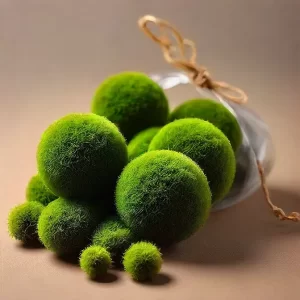
Marimo moss ball for sale
Popular FAQs About Moss Balls
1. How often should I clean my moss ball?
Clean your moss ball every 1-2 weeks by gently squeezing it and rolling it in aquarium water to remove trapped debris.
2. Can moss balls survive in saltwater tanks?
No, moss balls are freshwater algae and will not survive in saltwater.
3. Do moss balls require a lot of light?
No, they prefer low to moderate lighting. Too much light can cause browning.
4. Are moss balls safe for all fish species?
Yes, moss balls are safe for nearly all freshwater fish, shrimp, and snails.
5. Where can I find Marimo moss balls for sale?
You can find them in pet stores, aquarium shops, and online retailers.
6. Can moss balls replace plants in an aquarium?
Moss balls can complement plants, but they cannot replace large plants in heavily stocked tanks due to their slow growth and limited filtration capacity.
7. Do moss balls produce oxygen?
Yes, like other plants, moss balls produce oxygen through photosynthesis.
8. How fast do moss balls grow?
Moss balls grow very slowly, at about 0.2 inches per year.
9. Why is my moss ball turning brown?
Moss balls turn brown when exposed to too much light or if the water conditions are not optimal. They can usually be revived with proper care.
10. Do moss balls reproduce?
Yes, but it is rare. Under optimal conditions, they may split and form new moss balls.
In conclusion, moss ball plants for aquariums are an excellent addition for both aesthetic and functional purposes. Whether you’re a beginner or an experienced aquarist, moss balls offer a unique, low-maintenance option that can benefit both your tank and your fish.
5 Comments
[…] tank setups. Nature: Peaceful, friendly, and social. They love living in groups. This fish likes Moss balls plant for fish tank. Cost (INR): ₹20-₹60 per fish, varying with location. Optimal Conditions: Guppies prefer a […]
[…] versatile and can mimic natural sunlight, which is essential for the health and growth of plants, most ball and fish alike. Aquarium fishes do need […]
[…] each Climate Conditions: 70°F to 80°F (21°C to 27°C) Maintenance: Low Life Cycle: Long-lasting Can Moss Balls Replace Plants in an Aquarium? Moss balls provide some filtration and aesthetic value, but they do not offer the full benefits of […]
[…] Did you read the article on Aquarium magic with Moss Balls […]


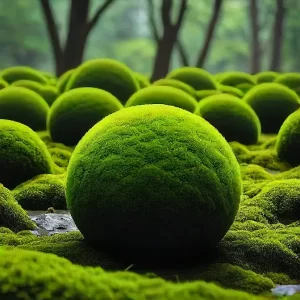
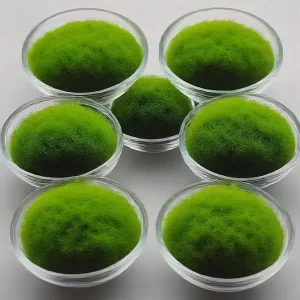
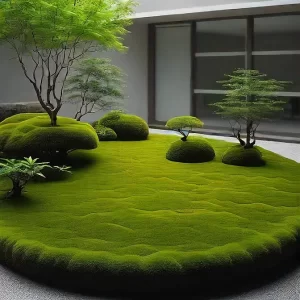
[…] Moss Balls for Aquarium […]